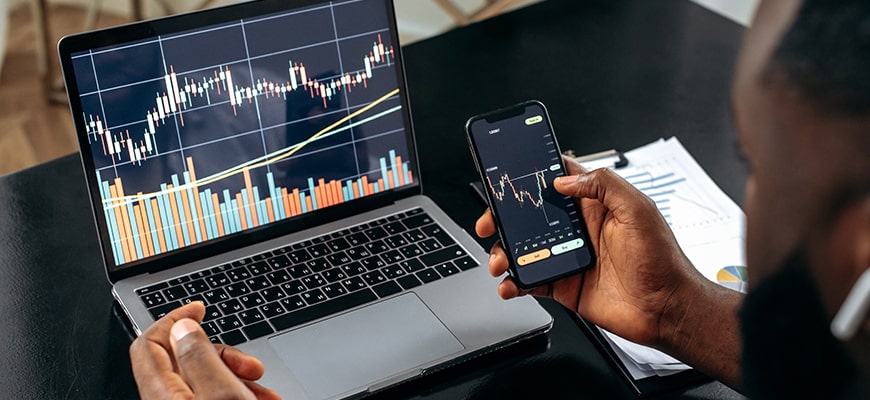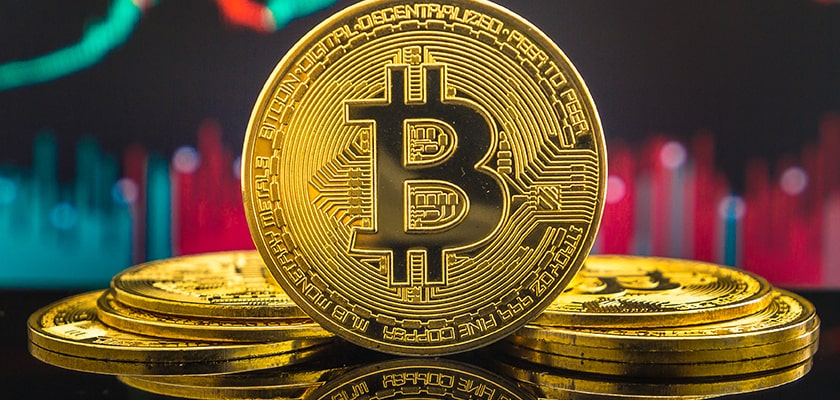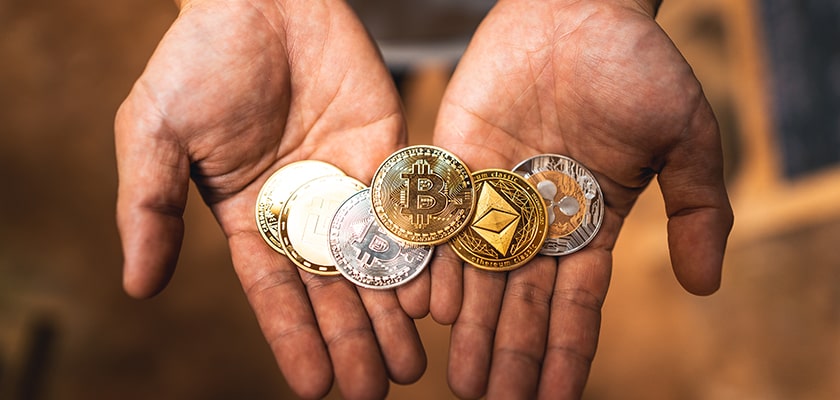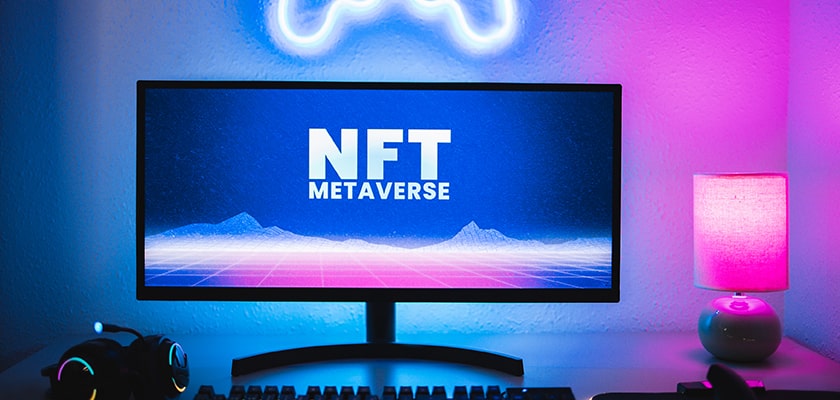Best Altcoins to Buy in 2025: A Comprehensive Guide
An altcoin is a term for any cryptocurrency but Bitcoin (it’s short for “alternative + coin”).
TGDRrating reviewed the list of the best altcoins to buy in 2025 and the factors to consider when investing in alternative coins.
Top 12 promising altcoins of 2025 year
We reviewed the top 12 altcoins to invest in 2025 year. Each coin has unique features, usage cases and purposes.
1. Filecoin (FIL)
Filecoin is a decentralized storage network created by Protocol Labs. It is unique because users pay for data storage, when using cloud one (like Dropbox or Google Drive), and get rewarded for storing other users’ files.
FIL is the native coin of the Filecoin network.
- Launch year: 2020;
- Blockchain: Filecoin;
- Maximum supply: 2 billion;
- Usage cases: payment for data storage, reward for checking and adding new blocks to the blockchain, network management (voting for proposals and making decisions that affect the future development of the network);
- Supported crypto wallets: Trust wallet, ImToken, MathWallet, Ledger and more.
2. CryptoGPT (GPT)
CryptoGPT is a second-level Ethereum blockchain that allows you to monetize data. Users can make income by completing various tasks and generating data that can be used to train and develop AI.
GPT is the internal coin of CryptoGPT.
- Launch year: 2021;
- Blockchain: CryptoGPT;
- Maximum supply: 3 billion;
- Usage cases: unit of account on the network, payment of transaction fees, staking, DAO management;
- Supported crypto wallets: Now Wallet, Ledger.
3. Toncoin (TON)
TON is a crypto project developed by the Durov brothers, the founders of Telegram Messenger. It was later handed over to the TON open community, which has supported and developed the project. TON was created as a platform for development and implementation of decentralized applications (dApps). It is considered one of the fastest blockchains (55,000 transactions per second were processed in 2021).
Toncoin (TON) is the native coin of the platform. Included in the top cryptocurrencies by market capitalization.
- Launch year: 2018;
- Blockchain: TON;
- Maximum supply: 5 billion;
- Usage cases: payment of transaction fees, staking, TON network management;
- Supported crypto wallets: Tonkeeper, TON Wallet, Tonhub, MyTonWallet, OpenMask, SafePal Wallet, Coin98.
4. Trust Wallet Token (TWT)
Trust Wallet is a decentralized wallet application owned by the Binance crypto exchange. Trust Wallet supports 65 blockchains (Bitcoin, Ethereum, Tron, Ripple, etc.) and 4.5+ thousand of cryptocurrencies and non-fungible tokens (NFTs).
Trust Wallet Token is the native coin of the Trust Wallet ecosystem.
- Launch year: 2020;
- Blockchain: Binance Chain, Binance Smart Chain;
- Maximum supply: 1 billion;
- Usage cases: discounts for in-app cryptocurrency purchases and decentralized exchange (DEX) services, participation in Trust Wallet governance, voting on Trust Wallet upgrade proposals;
- Supported crypto wallets: Trust Wallet, Atomic Wallet, Ledger.
5. Arbitrum (ARB)
Arbitrum is a Layer 2 scaling solution for Ethereum. Sidechains are used to process transactions, which reduces the load level of the Ethereum network and makes transactions faster and cheaper. Developers can use Ethereum smart contracts without having to learn a new programming language: applications built on Ethereum can be easily ported to Arbitrum and vice versa.
Arbitrum (ARB) is the native token of the Arbitrum blockchain.
- Launch year: 2020;
- Blockchain: Arbitrum;
- Maximum supply: none;
- Usage cases: voting on proposals that relate to the functions and updates of the protocol, the distribution of funds and the election of the Security Council;
- Supported crypto wallets: Rainbow, MetaMask, Wallet Connect, Trust Wallet, Ledger.
6. Avalanche (AVAX)
Avalanche (AVAX) is a high throughput blockchain platform using the PoS protocol. Like Ethereum, Avalanche supports smart contracts to run decentralized applications (dApps) on its network.
Avalanche is fast because it has three blockchains running on the same protocol layer. Compared to Ethereum, the Avalanche network is capable of processing more transactions.
Avalanche’s partnership with consulting company Deloitte marks a vote of confidence from one of the world’s most influential audit and consulting companies. Deloitte will use the Avalanche blockchain to support disaster relief programs.
AVAX is Avalanche’s internal token.
- Launch year: 2020;
- Blockchain: Avalanche;
- Maximum supply: 720 million;
- Usage cases: pay transaction fees and keep the network running by staking;
- Supported crypto wallets: MetaMask, Trust Wallet, Ledger.
7. The Sandbox (SAND)
The Sandbox is a gaming platform using blockchain technology.
At the heart of the Sandbox Metaverse is an ecosystem where players can communicate, create their own characters, and then participate in the game. An important advantage of Sandbox is its unique tools, thanks to which users with no programming experience can use the plug-and-play interface to create games.
Sandbox has already attracted the attention of large corporations. For example, Sandbox was implemented by Warner Music (virtual concerts in the Sandbox metaverse).
SAND is the in-game cryptocurrency of The Sandbox platform.
- Launch year: 2011;
- Blockchain: Ethereum;
- Maximum supply: 3 billion;
- Usage cases: payment of transaction fees, purchase of gaming assets, access to the platform for players, creators, artists, platform development management;
- Supported crypto wallets: Atomic Wallet, Trust Wallet, Ledger.
8. Chainlink (LINK)
Chainlink is a platform that allows non-blockchain companies to connect with projects running on the blockchain. The main function of Chainlink is to create a bridge between resources on the network and resources outside the network. To do this, the creators of Chainlink have developed a system of third-party assistants (oracles) that pass the necessary data to the blockchain. Oracles are intermediaries between smart contracts, blockchain and the external network. Their goal is to provide transparent, fast and accurate transfer of important information to the network. As a result, nodes in the network receive, validate and transmit data from multiple resources to other blockchains to execute smart contracts.
Chainlink technologies are successfully used on logistics, insurance and cryptocurrency platforms.
LINK is the internal cryptocurrency of the Chainlink platform.
- Launch year: 2017;
- Blockchain: Ethereum;
- Maximum supply: 1 billion;
- Usage cases: connecting smart contracts and external data sources, paying transaction fees;
- Supported crypto wallets: Atomic Wallet, Trust Wallet, Leger.
9. Hedera (HBAR)
Hedera Hashgraph is a public network that uses a new distributed ledger technology (DLT) known as Hashgraph. Although data is stored in hashes rather than blocks, Hashgraph works like a blockchain. The hashgraph is safe, anonymous, high performance and large capacity. Hedera Hashgraph supports cryptocurrencies, smart contracts and DApps.
Hedera is supported by major corporations: Google, IBM, Boeing, LG, T-Mobile, Nomura, Deutsche Telekom and others.
HBAR is a cryptocurrency and utility token of the Hedera network.
- Launch year: 2018;
- Blockchain: Hedera;
- Maximum supply: 50 billion;
- Usage cases: payment of transaction fees, verification of transactions;
- Supported crypto wallets: Atomic Wallet, Coinomi, Exodus, Ledger and more.
10. Algorand (ALGO)
Algorand is a next-generation high-performance blockchain. Many refer to this project as “Blockchain 3.0” as it solves Bitcoin’s scalability issues while maintaining security and decentralization. Algorand uses Proof-of-Stake, provides fast transactions and low fees.
Algorand supports many world-class investors: Pillar and Union Square Ventures and more.
ALGO is the native cryptocurrency of the Algorand network.
- Launch year: 2019;
- Blockchain: Algorand;
- Maximum supply: 10 billion;
- Usage cases: payment of transaction fees, staking, payment of rewards to validators, management and funding of new developments;
- Supported crypto wallets: Atomic Wallet, Trust Wallet, Exodus, Ledger and more.
11. Dogecoin (DOGE)
Dogecoin is a cryptocurrency that started as a joke on price speculation in the cryptocurrency. However, over time, Dogecoin has become a well-known cryptocurrency with a large number of users and an active community.
- Launch year: 2013;
- Blockchain: Dogecoin;
- Maximum supply: none;
- Usage cases: online shopping, payment on crypto gaming sites and casinos, charity;
- Supported crypto wallets: Atomic Wallet, Trust Wallet, MetaMask, Leger.
12. Solana (SOL)
Solana is a platform that offers fast, secure and scalable blockchain solutions for decentralized applications.
Solana features a hybrid consensus mechanism that combines Proof of History (PoH) with Proof of Stake (PoS). Hybrid Consensus maintains the security, reliability, and scalability of the network while providing significant transaction speeds, power efficiency, and high throughput. In fact, Solana can process up to 65k transactions per second. Some analysts predict that Solana will become similar to the VISA payment system, running on the blockchain.
SOL is the native cryptocurrency of the Solana platform.
- Launch year: 2020;
- Blockchain: Solana;
- Maximum supply: 500 million;
- Usage cases: staking, payment of transaction fees, smart contract transactions;
- Supported crypto wallets: Atomic Wallet, Coin98, Trust Wallet, Leger.
Factors to consider when investing in altcoins
There are many factors to consider when choosing altcoins to invest in. Let’s consider some of them:
- Market capitalizition: Shows which cryptocurrencies currently occupy the highest positions among others. The higher the market capitalization, the higher liquidity, which allows you to open and close trading positions at any time;
- Technology: Technological innovations affect the value of cryptocurrencies. If the functions and technologies underlying the coin (consensus algorithm, scalability, security measures, etc.) are unique, the coin will be promising and in demand on the market;
- Usage cases: If the project has multiple use cases, that’s a plus. It is also important to know which usage cases are promising and which are already in the market multiple times;
- Supply: Shows how many coins are already in circulation and how many can be mined. This will affect the price of the cryptocurrency in the long run. For example, Bitcoin has a limited number of coins. As more users invest in Bitcoin, the demand for the coin increases as the supply of BTC is limited;
- White paper: Make sure that the cryptocurrency you plan to invest in has a white paper. A white paper is a document with detailed information about a coin, its usefulness and purpose, as well as the technologies behind it. This will not only give important information about the coin, but also reassure you that it is not a scam;
- Development team: The project has a chance of success if it is developed by professionals with extensive experience in the field of blockchain, cryptocurrencies, security technologies, etc.;
- Community support: It is important that a coin has a community of followers behind it, promoting its use cases, attracting partnerships and collaborations both inside and outside the network.
Risks and issues of investing in altcoins
Investing in altcoins has the same risks as investing in Bitcoin: market volatility, regulation, technological risks, fraud, etc.:
- High volatility: Altcoin price movement is extremely volatile and unpredictable. For example, the price of a coin can drop by 90% or more in one day;
- Regulation: Regulators can prohibit any transactions with digital assets or, for example, recognize them as securities, which will affect their value. Investors should follow the legal side of the crypto industry: certain decisions can become a factor in the success or failure of altcoins;
- Technological risks: There may be failures in the operation of the exchange, crypto wallet, hacks, loss of private keys and other risks, which may lead to the loss of cryptocurrency;
- A lot of scam projects: Due to the large number of altcoins, it is sometimes difficult to determine which ones have long-term potential and which are scam projects;
- Low liquidity: altcoins are not as widespread as Bitcoin, they have less liquidity, making it difficult to buy or sell coins at a bargain price;
How to start investing in altcoins
To buy one or another alternative coin:
- Analyze the state of the market, assess the risks, read the opinions of experts and analysts;
- Select currency (if there are several, then decide on the risk portfolio: conservative, moderate or aggressive);
- Determine the cryptowallet for storage (use “cold” or “hot” wallets depending on the duration of storage, сoins amount, etc.). If you plan to store large amounts for a long time, choose a hardware wallet like Ledger. If you often make transactions and keep small amounts in your wallet, you can use mobile crypto wallets, for example, Trust Wallet or Atomic Wallet and others;
- Choose a reliable crypto exchange (high turnover, good reputation, positive reviews, etc.). You can pay attention to crypto exchanges like Binance, ByBit, OKX, etc;
- Make a deposit;
- Buy altcoin;
- Transfer cryptocurrency to a storage wallet.
FAQ
Altcoins were originally created to remove the limitations and weaknesses of Bitcoin. Over time, developers of alternative crypto projects began to add new features and capabilities: some altcoins are used for exchange, others allow running decentralized applications on the blockchain, etc. Popular altcoins are ETH, ADA, SOL, DOGE, DOT, etc.
- Practical use and usefulness: For example, Bitcoin was the first digital currency that did not require a bank. Users could store and send money offline, without the need for a third-party financial institution. Users wanted to be less dependent on financial institutions: Bitcoin satisfied this need, so the price of the coin grew;
- Technology: For example, Ethereum Virtual Machine (EVM) is the engine that powers the Ethereum ecosystem. The EVM provides the infrastructure for compiling and running smart contracts on Ethereum. It is for this reason that the Ethereum blockchain remains a favorite among developers of DApps, DEXs and other DeFi platforms, which favorably affects the rate of the native ETH coin;
- Characteristics of a cryptocurrency can make it an attractive investment (supply, usage cases, etc.);
- Partnerships and collaborations with large companies and brands indicate that the project has a future.
- Market capitalization: The higher the market cap (compared to other coins), the safer the investment;
- Usefulness: If the cryptocurrency has a purpose and solves a real problem or significantly improves an existing technology - this option can be considered for investment;
- Community and developers: Promising cryptocurrencies have a solid community. This community includes miners, developers, supporters and potential users. Digital currencies with a strong and active community are a good sign that there is genuine interest in the project. In addition, it is extremely important to pay attention to the experience of the team behind the crypto project.
- High volatility: Cryptocurrencies are very volatile, which can make it difficult to predict their movement and estimate the best time to invest;
- Fraud: When deciding to buy altcoins, be aware of the high level of fraud. There are fraudulent projects on the market aimed at stealing user funds and quickly enriching their creators;
- Security: Cryptocurrency wallets are vulnerable to hacking and viruses, which does not guarantee 100% security of storing not only altcoins, but also any digital assets. Therefore, choose cold storage like Ledger, Trezor, etc.;
- Regulation: Regulations and laws governing cryptocurrencies may ban digital coins or recognize them as securities, which may affect their value.
Conclusion
Altсoines or alternative coins are all cryptocurrencies except Bitcoin. If you want to add new altcoins to your investment portfolio, take a look at Filecoin, Toncoin, Trust Wllett Token, Arbitrum and other coins from our rating.
The risks associated with investing in altcoins are the same or even higher than when buying Bitcoin. Before investing in a new coin, think about the pros and cons and do not invest your last money.













